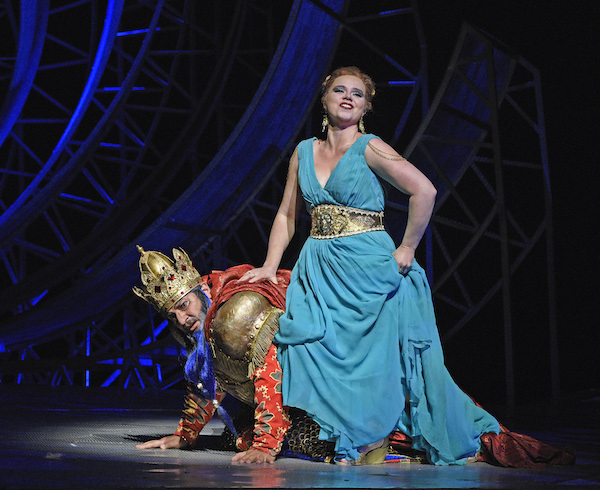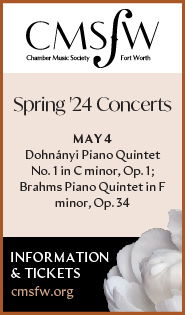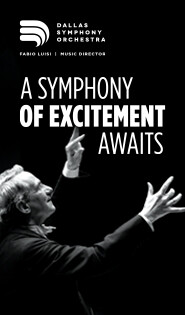Dallas Opera’s “Golden Cockerel” offers visual and vocal delights

Dallas Opera’s current production of The Golden Cockerel is enchanting both in its delivery of Nicolai Rimsky-Korsakov’s score and its interpretation of the story’s message.
Wednesday night’s performance at the Winspear Opera House offered equal measures of visual and vocal delights.
Rimsky-Korsakov’s final opera is, like many fairy-tales, a cautionary tale. Vladimir Bel’sky’s libretto, based on a 19th-century poem by Alexander Pushkin, tells of the slothful and inept King Dodon, who is troubled by the looming threat of invaders at his borders. When a mysterious Astrologer gifts him a magic bird—a golden cockerel that stands watch over the kingdom, ready to alert the king of any encroaching danger—he finds peace and respite. That is, until he doesn’t. War finds its way to his doorstep, and he eventually finds himself on the battlefield where he is seduced by the enticing Queen of Shemakha, which ultimately leads to his undoing.
Paul Curran’s staging—a coproduction with Santa Fe Opera–is a clever combination of clean, modernistic framework with bright, flamboyant costuming by Gary McCann. A twisted steel set serves as the backdrop upon which Driscoll Otto’s fantastical video images are projected, augmenting the setting and providing representation for trippy dream-sequences and the title avian itself. In this production, comedy reigns with heaping amounts of buffoonery and clumsy pantomime driving the plot through moments of dark humor and general mirth.
Nikolay Didenko’s bass provided a perfectly rounded King Dodon. Delivering the role in a padded fat suit and red onesie, he was affectionately bumbling, yet sang with a clean and robust tone that belied his child-like nature.
Making her Dallas Opera main stage debut, Olga Pudova was a vocal standout in the cast as the Queen of Shemakha. Her soprano lilted effortlessly throughout the lush and exotic legato of the character’s showpiece aria, the “Hymn to the Sun.” Her coloratura is clear and accurate, notably the melismatic phrases, with a dizzying high E above the staff at the end of Act II.
Barry Banks, a veteran to the role of the Astrologer who opens and closes the show, provided a stunning performance. The English singer’s bel canto style was well suited to this \ “tenor altino” role, with a bright and silvery ring that was carried smoothly throughout eall registers.
Jeni Houser, who is concurrently performing the role of Queen of the Night at the Dallas Opera in their run of Mozart’s Magic Flute, was a spritely Golden Cockerel. Singing entirely off-stage, she had an effective ring that could be heard through the house as the character sings primarily on stylized “cuckooing.”
Lindsay Ammann is Amelfa, the doting housemaid who pampered and enabled the king’s lazy behavior. Ammann showed power and control with her booming contralto.
Supporting roles were solid as well. Bass Kevin Burdette as General Polkan was a welcome source of boisterous comedy. Tenor Viktor Antipenko and baritone Corey Crider gave full and rousing character as the king’s equally inept sons, Prince Guidon and Prince Afron respectively. The chorus, prepared Alexander Rom, provided a balanced bed of support throughout, save for the final scene of Act III, where the basses pushed themselves just out of pitch.
Conductor Emmanuel Villaume, who conducted the same production in its debut at the Santa Fe Opera in 2017, led the orchestra with sensitivity. His understanding of Rimsky-Korsakov’s score—which bears striking similarities to the composer’s Scheherazade—allowed for a convincing delivery of the colorful, dream-like melodies that give the score its character. Fluttering chromatic passages in woodwinds and strings were set against dark horns while the harps and celeste created lavish soundscapes to envelope it all. This, combined with the visually arresting staging, made for a perfect environment for the outlandishly charming fairy-tale to unfold.
The final performance of The Golden Cockerel takes place 7:30 p.m. Saturday. dallasopera.org


